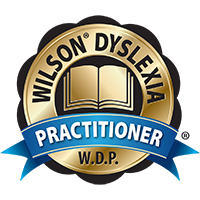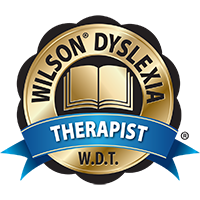This is for Wilson® Dyslexia Practitioners, Wilson® Dyslexia Therapists, and Wilson Reading System® Certified Teachers looking to connect with like-minded educators, explore compelling research on Structured Literacy and the science of reading, and discover how to apply their learning with the Wilson Reading System (WRS).
Inspire your WRS instruction, earn professional learning credits, and participate in dynamic breakout sessions.
This is for educators, interventionists, and specialists seeking to enhance their expertise in Structured Literacy and dyslexia intervention, and elevate their instructional impact by completing the hybrid WRS Introductory Course blending asynchronous instruction (June 1-July 11) with in-person breakout sessions at conference.
Don’t miss this opportunity to expand your knowledge and take the first step toward WRS Level I Certification.
This is for school administrators and district leaders seeking to drive transformational change in literacy instruction and gain the knowledge, skills, and network to empower their educators, support their students, and champion dyslexia-friendly schools.
Learn about special admin-only breakout sessions and other incentives.
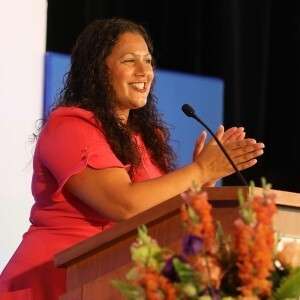
Tuition: $599*
Register now for your preferred track:
Learn more about our special discount rates.
Embark on a journey alongside a diverse community of educators who share your passion and commitment to literacy. Form meaningful connections that will endure well past the conference, creating a space where knowledge and insights are collaboratively shared.
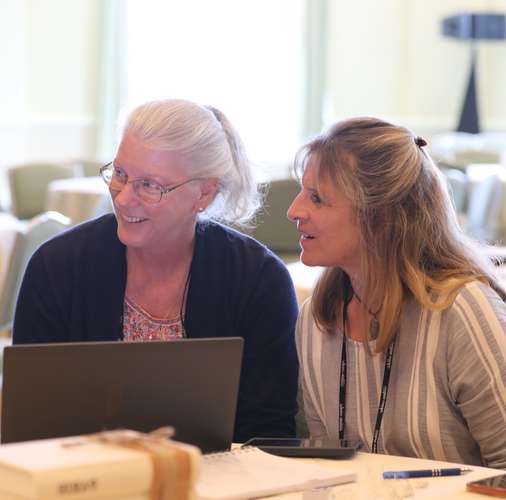
Don’t miss these dynamic general sessions for all conference attendees, featuring top experts in literacy, accessibility and education policy.
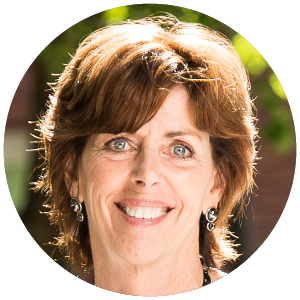
Barbara A. Wilson, M.Ed. is Co-Founder of Wilson Language Training® (WLT). For 35+ years, she’s brought Structured Literacy to educators through consultation to organizations focused on reading, professional learning work of WLT, and a dedication to implementation science. She authored three Structured Literacy programs—Wilson Reading System®, Just Words®, and Fundations® and has written articles, books, and chapters about teaching students to read based on the science of reading. She developed graduate courses with clinical practicums accredited by the International Dyslexia Association (IDA). Barbara testified in front of Congress for the READ Act. In 2022, she was recipient of IDA’s annual Margaret Byrd Rawson Lifetime Achievement Award, and in 2024, Barbara was named as an IDA Legacy Honoree, the highest honor that IDA bestows and was awarded to Barbara Wilson as one of the original developers of the Knowledge and Practice Standards (KPS) that have set a new benchmark for excellence in reading instruction. Barbara has been an ongoing contributor to IDA’s work including as co-editor of the organization’s 75th Anniversary edition of Perspectives on Language and Literacy, with a focus on Structured Literacy.
What would it be like to have schools across America be places where students with dyslexia could thrive? What kinds of things might they have across all tiers of instruction? In this session, Barbara Wilson, author of the Wilson Reading System® and co-founder of Wilson Language Training, will share her thoughts for a collective vision. Let’s do it together—one school at a time!
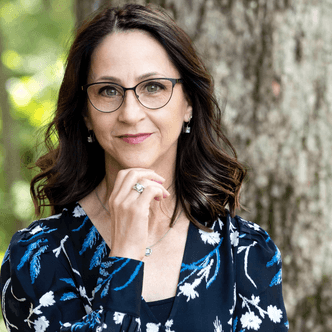
Bonnie has been dedicated to clinical service, teaching, research, publishing, and professional education for over 35 years. Dr. Singer holds a special passion for serving students who struggle with writing, reading comprehension, and executive functions. Her research and numerous publications focus on the relationship between spoken and written language, spatial processing, executive functions, cognition, and self-regulated learning. She founded Architects For Learning, where she led an interdisciplinary staff serving K-12 and college students in the Boston area for 30 years. As well, she launched a sister company, Vivido, which developed professional learning for SLPs, educators, and schools in evidence-based instructional methods for language, literacy, and learning. A board-certified specialist in child language, Dr. Singer received the 2023 award for Outstanding Contributions in Clinical Achievement by the American Speech-Language Hearing Association. In 2024, Vivido merged with Wilson Language Training, where Dr. Singer currently serves as the Head of Writing Science & Instruction.
In this presentation, we will explore how literacy interventionists can effectively enhance students' writing strategies while supporting classroom instruction. Participants will learn a proven self-talk routine with embedded strategies designed to help students initiate writing tasks, understand task demands, and set meaningful goals and plans. These strategies require no writing on the part of the student, but they provide essential scaffolding for executive function and language skills that underpin successful writing.
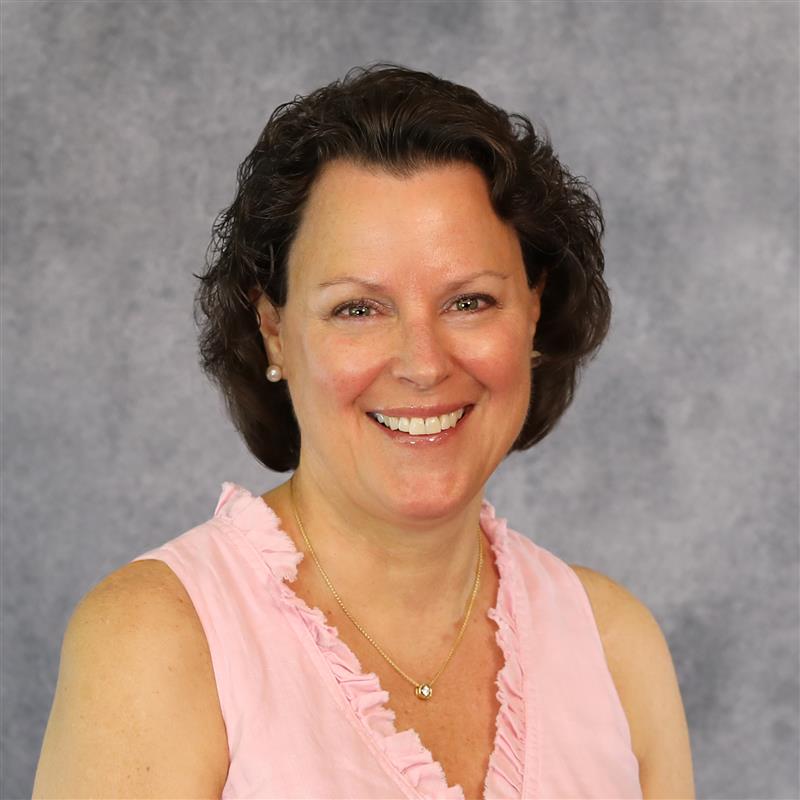
Nanci Shepardson is the Director of Accessibility and Assistive Technology Solutions at Wilson Language Training. A credentialed K-12 Reading Specialist and WRS Level 1 Certified Dyslexia Practitioner, Nanci is a seasoned educator, published author, and national speaker on dyslexia, executive functioning, and assistive technology. She is dedicated to advancing equity and access in literacy instruction and serves as a resource for parents, teachers, and schools.
The use of AI generates many questions for teachers and students alike. For students with learning challenges, the implications of the use of AI are very promising. This session will provide an overview of what AI is, how it is used, and what the preliminary research says about its effectiveness for students with reading disabilities.
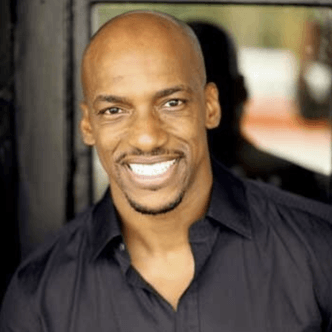
Nominated Actor, author, dyslexia advocate, youth mentor, and prison coach. Born to humble beginnings in New Orleans, Louisiana, Ameer had an early life that was as gloomy and as ill-fated as a young life could have been. In and out of the prison system as a kid for transgressions ranging from youthful indiscretions to major crimes, he was seemingly on a one-way trip to oblivion. Almost illiterate when he went to prison, he was diagnosed with dyslexia and learned to read in his mid-twenties while behind bars.
Since then, Ameer has been building a career as an actor, currently seen on BET’s “ZATIMA”. He has worked with many fine and notable performers like Angela Bassett and Kathy Bates.
Seeing how education and ability to read have changed his life, Ameer is dedicated to inspiring young people with his message that they, too, can overcome meager beginnings and obstacles in their way to eventually triumph through hard work, dedication, the pursuit of education, and strong faith.
Ameer is dedicated to working with at-risk youth in their own crime-infested public housing projects to get them off the streets and into the classroom while exposing them to better life opportunities. He mentors incarcerated youth to inspire and prepare them to learn life and career skills and make better future life decisions. His work also includes providing racial bias training to police departments to identify and mitigate implicit and unconscious biases and prejudices based on a person's racial identity Proud of every aspect of his life, including his brief stint in the Louisiana State Penitentiary, he now travels the world, speaking at colleges, universities, corporations, and youth organizations.
He uses all his life experiences to increase dyslexia awareness.
Award-winning actor, dyslexia advocate, and author Ameer Baraka addresses the potential transformative impact of education. Drawing from his own struggles with undiagnosed dyslexia, he will highlight the systemic link between illiteracy, incarceration, and marginalized communities. Ameer will challenge educators to break these cycles through early identification and intervention. His inspiring testimony will reinforce the vital role teachers play in empowering students with dyslexia to overcome obstacles and achieve success.
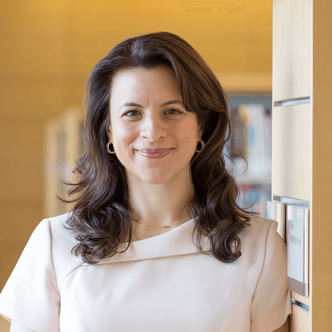
Dr. Joanna Christodoulou is a Professor in the Department of Communication Sciences and Disorders at the MGH Institute of Health Professions in Boston. She integrates roles as a developmental cognitive neuroscientist, educator, and clinician in her work. She leads the Brain, Education, and Mind (BEAM) Lab, which conducts research on reading development and difficulties, brain plasticity, and reading interventions, with the goal of advancing the skills of all readers in and out of school settings.
In this presentation, we will discuss reading outcomes and socioeconomic status (SES) from a developmental cognitive and educational neuroscience perspective. Socioeconomic disadvantage is often narrowly defined based on parental income, education level, and/or occupational prestige. However, implications of socioeconomic status extend broadly to a suite of areas relevant for reading outcomes including a student’s access to resources and, experiences, language exposure, academic outcomes, and psychological correlates. Underlying this constellation of factors are brain systems supporting the processing of oral and written language as well as stress-related factors. Weaved throughout these topics will be common misconceptions related to SES and reading, and current evidence to update our perspectives. We will review implications of these topics for reading development in home and school settings.
Urna interdum lacinia taciti sed volutpat. Lobortis sodales torquent convallis vehicula egestas adipiscing arcu risus si lectus. Malesuada pulvinar justo eu habitant viverra sodales si facilisis at interdum. Metus ultricies quisque non curae enim ultrices et litora nisi ad porttitor. Amet eros mollis potenti odio dictumst augue suscipit lobortis ad molestie. Donec consequat elit vitae ridiculus molestie bibendum lorem purus imperdiet hac. Duis mi ad semper eros scelerisque porta magnis libero gravida pellentesque mattis. Lacinia suspendisse morbi urna hac arcu tempor donec sem viverra nulla curae.
Session 1 | Bridging Language and Writing: Strategies for Academic Success (July 21, 10:45 AM - 12:00 PM)
Drawing on the best research, learn how to merge self-talk, dialogic instruction, and executive function strategies to support students with the academic writing process. During this session, work collaboratively with others to put into practice what was discussed during the general presentation by Bonnie Singer, PhD, Head of Writing Science & Instruction at Wilson®.
Session 2 | The End Goal – Comprehension (July 21, 1:15 - 2:30 PM)
Explore the progression of reading comprehension, from foundational and initial phases to the more advanced secondary and proficient phases. Focusing on Parts 9 and 10 of the Wilson lesson, deepen your understanding of key instructional tasks, including interactive oral reading, scaffolded silent reading, and rereading/going deeper. With an emphasis on teaching students to ‘own’ increasingly complex texts, learn how you can implement actionable strategies to develop confident, independent readers.
Session 3 | Mobilizing Empathy: Championing Social-Emotional Resilience in Students with Dyslexia (July 22, 10:30 - 11:30AM)
Join us for an insightful discussion designed to inform participants about unlocking the potential of empathy in supporting individuals with dyslexia. Learn what the research says about the role of educators in fostering a trust-filled school environment. Discover how to focus on students’ unique strengths and talents while promoting growth, building relationships, and maintaining open communication with students and their families.
Session 4 | Exploring the Morphology and Vocabulary Connection (July 22, 12:30 – 1:30 PM)
Understanding word structure through morphology is a powerful tool for vocabulary development, helping students unlock the meaning of unfamiliar words and expanding their language skills. Gain insights into research-based strategies that empower learners to analyze and generate new words, fostering independent vocabulary growth. Discover why explicit morphological instruction is essential for building a strong literacy foundation and equipping students with lifelong word-learning skills.
Session 1 | Certification Start-Up Session, Part 1 (July 21, 10:45 AM - 12:00 PM)
This session is designed for teachers beginning their journey to becoming a Wilson® Dyslexia Practitioner. Jump-start your certification program with this engaging and informative session! Begin with an overview of the practicum requirements, then explore essential teacher materials, and learn how to assemble your teacher binder. Plus, take a guided tour of Wilson Academy® and become familiar with key resources for Wilson teachers and students.
Session 2 | Certification Start-Up Session, Part 2 (July 21, 1:15 - 2:30 PM)
Your Wilson® Dyslexia Practitioner journey continues during this session by exploring the practicum student selection criteria, the practicum student approval process, and the essential materials your student will use throughout their practicum lessons. Learn the key components of a Student Portfolio and how to organize it for success. Plus, get a sneak peek at the WRS Level I Practicum Dashboard, an online resource designed to support both you and your student every step of the way.
Session 3 | Mobilizing Empathy: Championing Social-Emotional Resilience in Students with Dyslexia (July 22, 10:30 - 11:30AM)
Join us for an insightful discussion designed to inform participants about unlocking the potential of empathy in supporting individuals with dyslexia. Learn what the research says about the role of educators in fostering a trust-filled school environment. Discover how to focus on students’ unique strengths and talents while promoting growth, building relationships, and maintaining open communication with students and their families.
Session 4 | Exploring the Morphology and Vocabulary Connection (July 22, 12:30 – 1:30 PM)
Understanding word structure through morphology is a powerful tool for vocabulary development, helping students unlock the meaning of unfamiliar words and expanding their language skills. Gain insights into research-based strategies that empower learners to analyze and generate new words, fostering independent vocabulary growth. Discover why explicit morphological instruction is essential for building a strong literacy foundation and equipping students with lifelong word-learning skills.
Session 1 | Bridging Language and Writing: Strategies for Academic Success (July 21, 10:45 AM - 12:00 PM)
Drawing on the best research, learn how to merge self-talk, dialogic instruction, and executive function strategies to support students with the academic writing process. During this session, work collaboratively with others to put into practice what was discussed during the general presentation by Bonnie Singer, PhD, Head of Writing Science & Instruction at Wilson®.
Session 2 | Implementation Factors for Success (July 21, 1:15 – 2:30 PM)
Strong and sustainable implementation of WRS is an essential component in creating dyslexia-friendly schools. This session offers a framework for assessing intensive reading intervention within your school or district while examining resources that promote effective instruction. Key topics will include student identification, scheduling/dosage considerations, and program implementation strategies. Administrators will also gain insight into the support available to them through both our online educator resources and the WRS WIN Prin: Dyslexia Friendly Schools, a series of interactive sessions designed with school leaders in mind.
Session 3 | Mobilizing Empathy: Championing Social-Emotional Resilience in Students with Dyslexia (July 22, 10:30 - 11:30AM)
Join us for an insightful discussion designed to inform participants about unlocking the potential of empathy in supporting individuals with dyslexia. Learn what the research says about the role of educators in fostering a trust-filled school environment. Discover how to focus on students’ unique strengths and talents while promoting growth, building relationships, and maintaining open communication with students and their families.
Session 4 | Administrator Advisory Meeting (July 22, 12:30 – 1:30 PM)
Join us for an interactive discussion designed specifically for administrators to share their insights, challenges, and needs regarding WRS implementation in their districts. This session will provide a brief overview of key WRS updates, followed by a collaborative conversation in which administrators can exchange ideas, ask questions, and provide feedback to support effective implementation. Whether you are new to WRS or looking to enhance existing practices, this session offers a valuable opportunity to connect with peers and contribute to the ongoing effort of championing dyslexia-friendly schools.
Book your The Hilton Boston Park Plaza accommodations now at the special discounted rate of $259 per night plus taxes and fees.
Rooms are very limited! Rate valid on a space-available basis until Thursday, June 19, 2025.
or call 617-457-2290 and identify yourself as part of Wilson Language Training 2025.

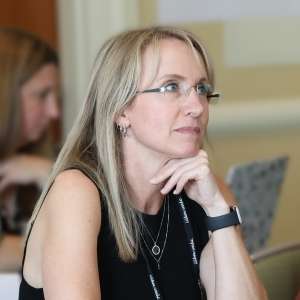
Build shared understanding within your school or district by having a team of educators participate. If you are registering three or more educators for any Wilson® Conference, please email wilsonconferences@wilsonlanguage.com for additional discounts.
WRS Certified Teachers who maintain their Wilson® Dyslexia Practitioner or Wilson® Dyslexia Therapist credential are eligible for an additional discount. Use the discount code WPLC30 when registering to save an additional $30!
Convince your administrator of the value of the 2025 Wilson Conference for your professional development. Our justification letter template makes getting approval easier. Just download, edit to focus on elements that are most relevant to you, and send the message to your administrator to make your case.
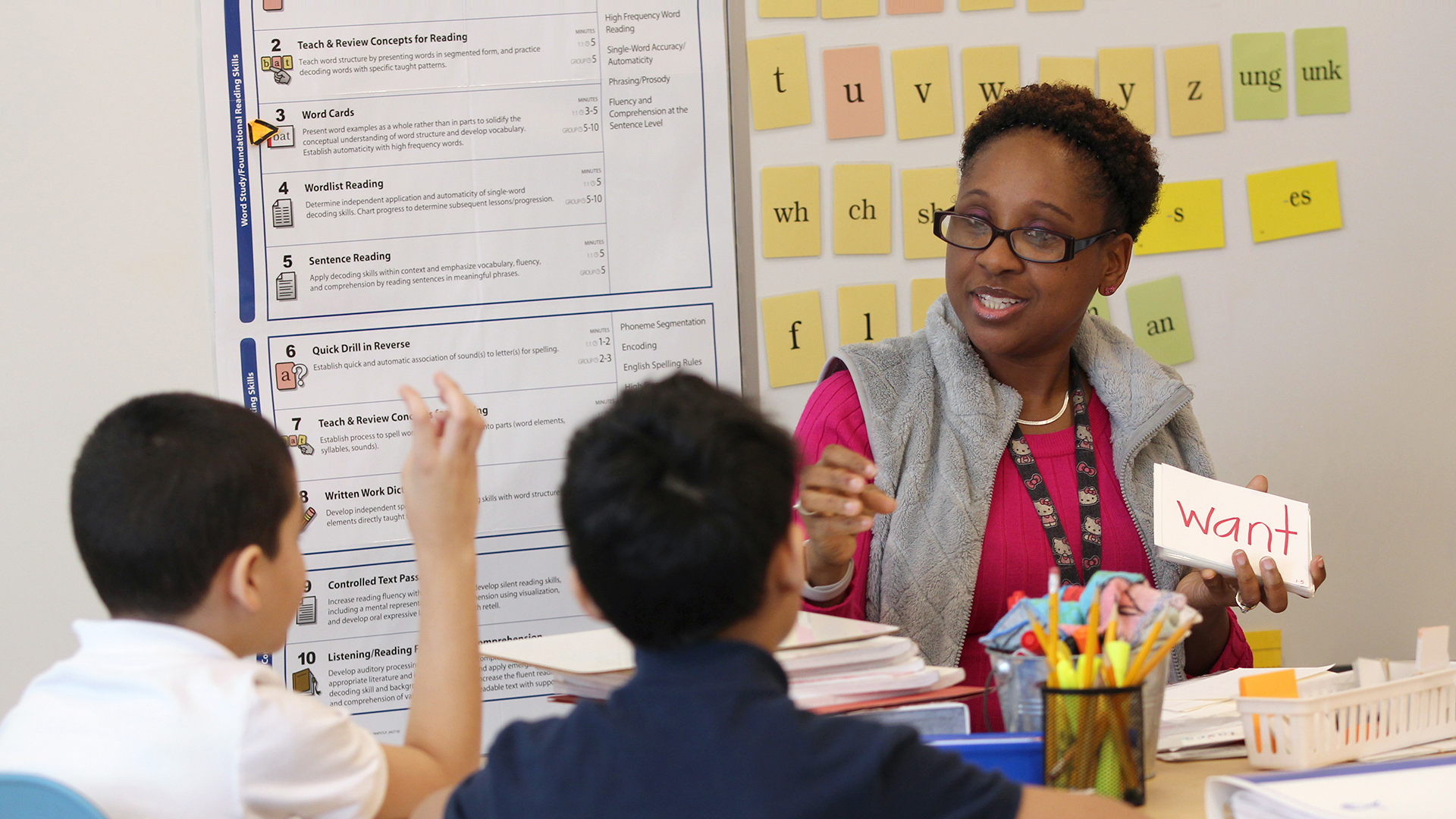
Earn professional learning hours by participating in the 2025 Wilson Conference.
Upon successful completion, you can download your certificate of attendance with number of hours to document professional development for school, licensure, or other use.
Wilson Reading System® Certified Educators may use the certificate of attendance from these Wilson® Conferences toward renewal of their Wilson® Dyslexia Practitioner (W.D.P.) and Wilson® Dyslexia Therapist (W.D.T.) credentials in the Wilson category.
For more information, please visit FAQs for Wilson Professional Credentials.
